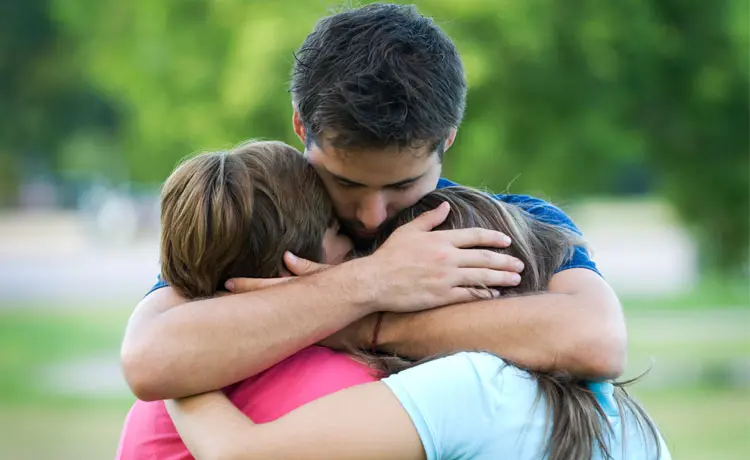A parent’s natural instinct is to protect their child from enduring any kind of pain or trauma. But, in today’s world, it is becoming increasingly difficult to shield children from disturbing or stressful situations. From gun violence to natural disasters, many children are assigned front-row seats to traumatic events – which are experiences that can leave them with long-lasting harmful effects.
No matter how a child is exposed to trauma – whether they experience it, watch it on TV or hear others talking about it – they can feel scared or anxious. And because children react to trauma differently than adults, parents don’t always know the right way to help them cope.
Did You Know? About 35 million U.S. children have experienced one or more types of childhood trauma.Read on for 4 important tips to help parents, caregivers and teachers learn how to respond to children’s fears and give them the support they need in the wake of a traumatic event.
Let’s Talk About Traumatic Events...
Although younger children might have different reactions than teenagers, there are similar approaches you can take to keep the lines of communication open with kids of any age following a traumatic event.1. Start the Conversation
Your child might not be talking about the traumatic event, but that doesn’t mean he or she hasn’t been affected by it. Initiate a conversation with open-ended questions like these:- “How do you feel about what’s happened?”
- “What are you or your friends saying about it?”
Tips for Younger Children:Also take this opportunity to correct any misconceptions they may have about the event. You can tailor the type of details you give to a child’s age.Ask: “What do you believe happened?” Understand that children tell the story from their own perspective. If a child is misinformed, give him or her the opportunity to tell the story as he or she believes it to be true. Give honest, gentle, age-appropriate facts if their information is incorrect.
2. Reassure Your Children
A traumatic event can shake your child’s world. He or she might be feeling stressed, scared or anxious. When talking about the traumatic event, reassure them:- You are here for them.
- They are safe.
Try to limit your child’s exposure to media coverage on the traumatic event. The more they hear about it, the more traumatized they might feel. This can be harder to do with older children, but do your best to keep TV and radio reports out of the house, and try to limit their usage of internet and social media, if possible.
3. Be a Good Listener
Give your child your full attention, and never criticize or minimize what they’re saying. Always say “I understand why you’re scared, but…” instead of “Don’t be silly!” Show your child that you’re engaged and attentive by asking follow-up questions such as:- “Can you tell me more about that?”
- “What do you mean by…?
4. Talk About Feelings
Encourage your child to talk about his or her feelings, and also express your own. It’s only natural for children to experience a roller coaster of emotions following a traumatic event. Whatever your child is feeling – sadness, fear, stress, anxiety – show understanding and compassion. You might want to say something reassuring such as:- “It’s OK to feel scared.”
- “It’s normal to feel sad about…”
- “I am upset about what happened too.”
Tips for Younger Children: Encourage your children to express their feelings in nonverbal ways, such as through drawing, writing, singing or playing.
Tips for Older Children:Suggest your older children keep a journal of their reactions and feelings about what happened. Tell them they can talk to you about what they write, if they feel comfortable doing so.
The Good News…
Luckily, children are resilient. With the right immediate support, most of them eventually recover after a traumatic event. If your child has experienced something disturbing, the most important thing you can do is make him or her feel cared for and loved. If your child has trouble overcoming a trauma and is showing signs of traumatic stress (nightmares, excessive fear or worry, aggression), he or she may need additional support. Consider talking with a mental health professional to help your child work through his or her emotions. With the right support, your child can rise above the trauma and grow stronger from the experience.
If you need help, take advantage of the helpful resources in your community. Call the SAMHSA Treatment Referral Helpline at 877‑SAMHSA7 (726‑4727) to locate treatment services in your area.
